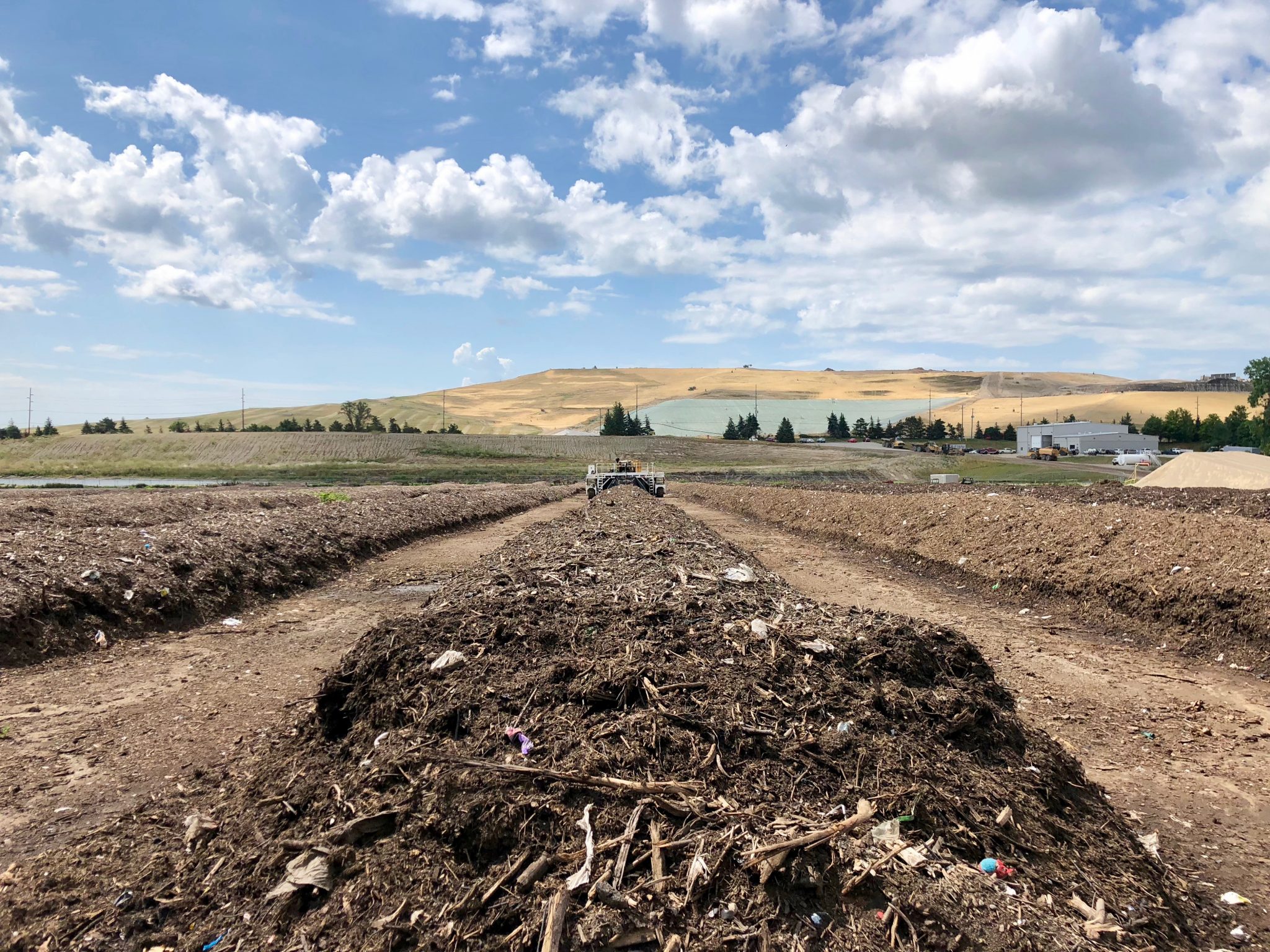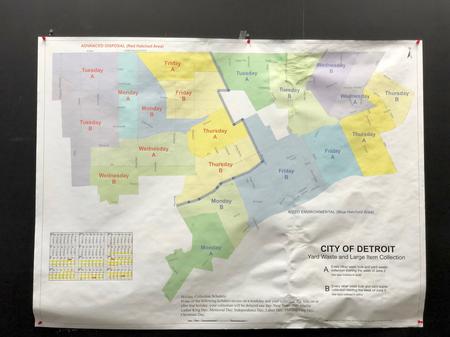CuriosiD: Where Does Detroit’s Yard Waste Go?
And who uses the compost that gets produced?

Listener Noah Link has a question about the branches and leaves his neighbors put on the street for pick-up:
“I’m wondering what happens to all the yard waste, and organic waste that I see out on the curb in Detroit. Does it go to a composting facility in the city? And who uses the compost that gets produced?”
Noah Link
The Short Answer
Detroit’s yard waste is hauled off to various locations throughout city. It’s done by the same contractors who handle garbage and recycling. At transfer stations located around town, Detroit Public Works puts the organic waste through a woodchipper before it’s transported to a composting facility located outside of the city. Current city ordinance allows for personal composting, but the smell produced by composting complicates larger scale activity.
Curbside Pick-Up

As part of its basic services, Detroit Public Works picks up all sorts of waste from residential curbsides. Trash collection takes place every week. Pick-up of recycling and bulk items, like old couches and TVs, happens every other week. The same goes for yard waste, which is another way of saying leaves, grass clippings, tree branches, twigs, brush and shrubs. All of that organic material needs to be placed in a container, usually a big, biodegradable brown bag, or tied into small bunches before it’s put on the curb.

Detroit contracts its waste removal services to two companies: Advanced Disposal and Green for Life – or GFL. While GFL covers Southwest Detroit, downtown, and the east side of the city, Advanced Disposal takes care of the west side. Darryl Hicks operates a grapple truck for Advanced Disposal. He spends his days driving through neighborhood streets, picking up yard waste from residential curbsides and moving it to his truck. “We run approximately four loads a day,” says Hicks.

Haulers bring the organic waste to various transfer points Detroit DPW operates. Once the piles get large enough, they are cut down to manageable pieces and transferred out of the city. DPW says this year, the city has moved about 6,300 tons of waste to the Advanced Disposal composting site.
Composting Outside the City

At the composting yard just outside of Northville, Jeff Hahm picks up a large pile of ground-up yard waste with a front loader and moves it to the other side of the site. Hahm runs the Advanced Disposal compost facility. It’s a one-man operation on Six Mile Road, right on the border of Washtenaw and Wayne Counties. The yard is about the size of two football fields.
With the front loader, Hahm lays out chopped-up yard waste in large windrows, which are long, wide piles of compost that line the site. He says the composting takes care of itself. “We pretty much let nature do its course,” says Hahm. “We just help it along by adding oxygen when we turn, and keeping it so it always has active cultures so it will process quicker.”

Hahm says he uses a machine to turn over the rows every two to three weeks. Once the rows have gone through that process a few times, the material looks a lot like soil. Hahm sifts and filters out any impurities from the dirt he’s made, and Advanced Disposal sells the compost to whoever shows up to buy it. But before it’s ready to be sold, Hahm says a fresh pile of compost lets off a pretty noticeable smell. “You’ll smell the ammonium nitrate from the grass,” Hahm says.

It’s the smell that keeps the composting outside of the city, according to Detroit DPW.
“The chemical breakdown that happens with the compost material puts off a pretty good odor, so you need it out somewhere where there’s not a lot of residential homes or businesses that could be offended by the odor it might put off.”
Doug Collins, Detroit Public Works’ Superintendent of Solid Waste
Problems in the Past, Possibilities for the Future
Detroit has had issues when composting has been done on larger scales. Recently, two Detroit-based composting businesses were fined by the police after a FOX 2 news crew reported on their activities.
While the City of Detroit allows for individual composting, piles cannot be any bigger than three cubic yards, making it difficult to get permits for larger sites and commercial operations. But Detroit’s composting rules might change in the future as the city crafts its environmental agenda.
“Some potential projects are having centralized sites in the city or also frankly, educating people how to compost in their own backyards.”
Joel Howrani Heeres, Detroit’s Director of Sustainability
About the listener

Noah Link is an urban farmer who works outside of Detroit’s Boston-Edison neighborhood. Besides the produce he grows, he maintains a a chicken coop, where two emus named Homer and Elie live.
